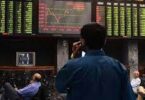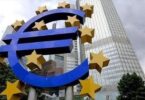TOKYO (AP): With U.S. markets homing in on this week’s critical August inflation update, Japan threw a curve ball into the piece by signalling a possible early end to its easy money stance just as other G7 central banks are mulling an end their tightening.
In a weekend interview, Bank of Japan Governor Kazuo Ueda said the central bank could end its 7-year-old negative interest rate policy when achievement of its 2% inflation target is in sight – suggesting the BOJ is considering official interest rate hikes as well as an early end its bond-buying, yield cap policy.
“If we judge that Japan can achieve its inflation target even after ending negative rates, we’ll do so,” Ueda said.
The comments seemed to catch markets off guard, sending the 10-year Japanese government bond yield up more than 5 basis points to a 9-year high above 0.7%. The yen surged 1% against the dollar, knocking the U.S. currency back more generally (.DXY) on the foreign exchange markets.
Warming to the prospect of higher net interest margins, the Tokyo Stock Exchange’s banking index (.IBNKS.T) jumped 4.69% in its sharpest daily gain of the year and was the top gainer among the 33 industry sub-indexes.
But the prospect of BOJ tightening and a stronger yen was less welcomed by other stocks and the Nikkei (.N225) closed down 0.4%.
Global bond markets were agitated too, with 10-year U.S. Treasury yields climbing 5bps to 4.30%.
If Japan’s does tighten further by yearend, it comes as the Federal Reserve and European Central Bank rate hike campaigns are coming to halt. Markets are betting the ECB will at least pause its series of rate rises at 3.75% when it meets this week – although many think it will be a close call on Thursday.
Futures still see less than a 50% chance of another Fed hike in the cycle but the inflation picture may start to get messy from here as favourable annual base effects from oil prices fade.
Irked by the recent rebound in energy prices, headline U.S. CPI inflation is expected to have picked up pace last month to 3.6% from 3.2% – although the Fed may still be relieved as stickier ‘core’ inflation is forecast to ebb 0.4 point to 4.3%, its lowest since 2021.
The extent of the retail sales slowdown from July’s red hot reading is the only question there.
More generally, stocks were in decent shape on Monday after a rum start to September and a plethora of mixed macro signals.
Hong Kong (.HSI) was an exception, with a fourth straight day of declines led by its ailing property sector stocks. Alibaba dropped 4% as ex-group CEO Daniel Zhang quit and raised concerns about spinoffs of different units.
News of an expected return of headline Chinese consumer price inflation to positive territory last month and above-forecast August lending data helped mainland shares (.CSI300) higher, with the yuan bouncing back from 16-year lows.
European bourses and Wall St futures were also starting the week in an upbeat mood.
Meta Platforms (META.O) is working on a new artificial-intelligence system intended to be as powerful as the most advanced model offered by OpenAI, the Wall Street Journal reported on Sunday, citing people familiar with the matter.
Arm, the chip designer owned by SoftBank Group (9984.T), is close to securing enough investor support to attain the $54.5 billion valuation it was seeking in this week’s planned initial public offering – the top of its indicated range – and may push higher.
Arm will likely be able to price the IPO at the top or above its $47-to-$51-per-share range when its underwriters close their books on Wednesday on the biggest U.S. stock market debut in two years.







